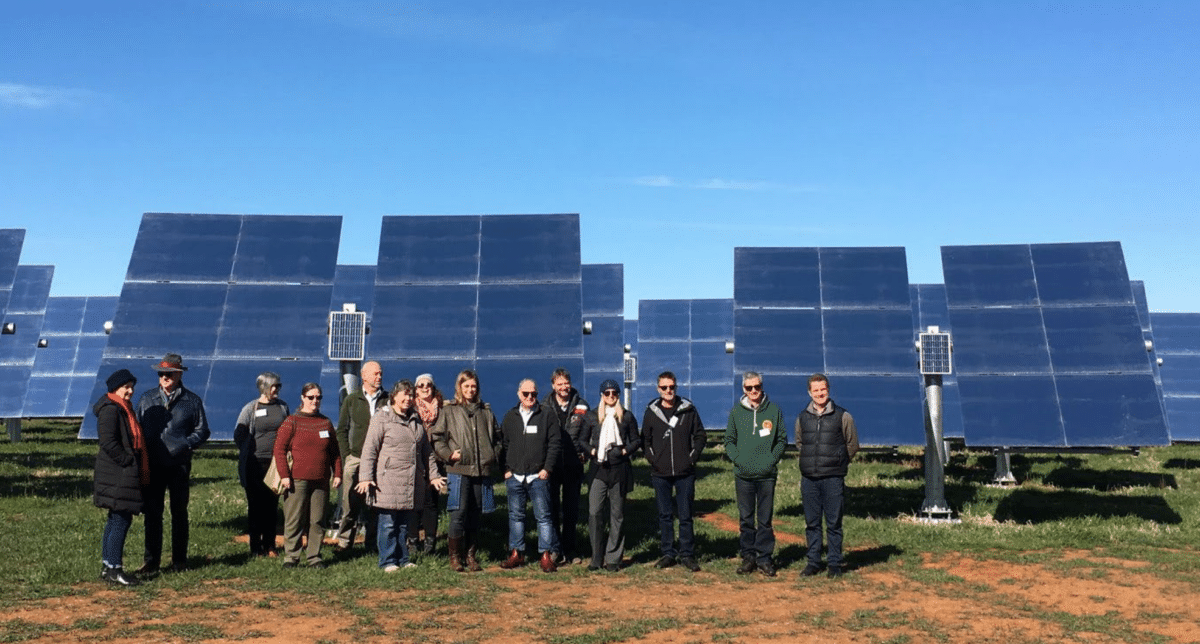In February, the Independent Member of Parliament (MP) for the Victorian seat of Indi, Helen Haines, introduced her Australian Local Power Agency bill into federal parliament. The bill proposes a new funding agency be formed and that local communities be given the opportunity to invest in renewable projects built in their region.
The parliamentary House Standing Committee has now launched its inquiry into the bill and will soon offer recommendations which could determine the bill’s fate. The inquiry involves a submissions process which will be open to the public for just two weeks, closing on July 9.
Haines’ Australian Local Power Agency bill
MP Helen Haines has said the bill seeks to establish “a new relationship with energy for regional Australians,” by setting up a dedicated Australian Local Power Agency (ALPA) to support community-owned renewable energy projects.
🔊 Big news – the House Standing Committee on Energy and the Environment is now examining the Australian Local Power Agency Bills, our blueprint to drive investment in locally-owned renewables in regional Australia.
Make a submission: https://t.co/m0OKY89U7p pic.twitter.com/qoQu0v5XSK
— Helen Haines MP (@helenhainesindi) June 25, 2021
The federal MP has previously said the current methods of funding, including investments made by the Australian Renewable Energy Agency (ARENA) and the Clean Energy Finance Corporation (CEFC), have proven highly effective in propagating Australia’s renewable energy boom, but tend to favour larger corporations and investors. The Australian Local Power Agency bill, on the other hand, seeks to establish a new federal government entity which would underwrite new medium-scale renewable projects and offer local communities ownership, ensuring the money generated at the sites remains in the local region.
“If the ALPA bills were legislated, a new $467 million agency would support regional communities to develop and invest in their own renewable energy projects,” Haines’ website reads.
The Australian Local Power Agency would enable community participation and ownership or part ownership of renewable projects via three avenues:
- It would offer a program set up through 50 or so regional hubs, to provide technical support for communities to develop local projects, such as microgrids comprising rooftop solar installations that allow them to share energy throughout communities.
- It would offer underwriting of new medium-scale locally owned renewable energy projects, with a proposed budget of $50 million over the coming 10 years.
- Community ownership would become a requirement of all regional renewable projects. That is, the new federal agency would mandate that developers of large-scale projects offer at least 20% of the value of their projects to local residents to invest in.
The bill was developed out of Haines’ Local Power Plan, launched in September 2020 after consultation with communities and energy experts, including Juliette Millbank of Totally Renewable Yackandandah, Ben McGowan from Indigo Power, and Marnie Shaw, a Research Leader in the Battery Storage and Integration Program at the Australian National University.
Haines says there are already more than 100 community energy groups in Australia, “and 13 in my electorate”, many of whom were represented in the Local Power Plan.
Haines has said that the new agency could use its proposed budget to support more than $4 billion of new clean energy investment over the next decade, while providing measurable outcomes in rebuilding and re-energising local communities.
Clean energy front and centre of independent agendas
Helen Haines has been pushing the issue of renewable energy in Australia alongside New South Wales independent MP Zali Steggall. In November 2020, Steggall proposed a Climate Change Act that would see Australia commit to a zero emissions target by 2050, and the establishment of an independent Climate Change Commission to advise government and monitor progress towards that goal.
The report from the parliamentary inquiry into Steggall’s own Climate Change Act bill is currently being finalising and is expected to be made public in the next two weeks. “A number of good amendments were proposed during the inquiry and we are in the process of implementing some them into the bills with the intention of reintroducing the Climate Change Bills to parliament after the winter break,” Steggall wrote in an email update about the bill’s progression, after concern was raised last week that it had been listed as “not proceeding” on the parliamentary website.
This content is protected by copyright and may not be reused. If you want to cooperate with us and would like to reuse some of our content, please contact: editors@pv-magazine.com.









1 comment
By submitting this form you agree to pv magazine using your data for the purposes of publishing your comment.
Your personal data will only be disclosed or otherwise transmitted to third parties for the purposes of spam filtering or if this is necessary for technical maintenance of the website. Any other transfer to third parties will not take place unless this is justified on the basis of applicable data protection regulations or if pv magazine is legally obliged to do so.
You may revoke this consent at any time with effect for the future, in which case your personal data will be deleted immediately. Otherwise, your data will be deleted if pv magazine has processed your request or the purpose of data storage is fulfilled.
Further information on data privacy can be found in our Data Protection Policy.